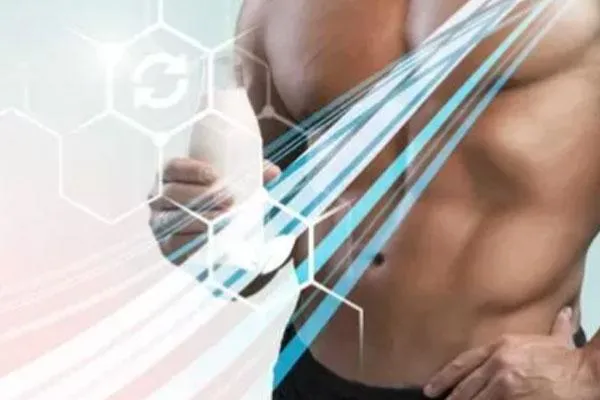
The Benefits and Risks of Hormone Therapy for Low Testosterone
The Benefits and Risks of Hormone Therapy for Low Testosterone

The Body’s Response to Low T
Testosterone is a male hormone that is responsible for several physical and sexual characteristics in men. As men age, the production of testosterone naturally decreases, leading to symptoms such as low energy, decreased muscle mass, and reduced sex drive. This condition is known as hypogonadism or low testosterone.
Hormone therapy is a common treatment for low testosterone. This therapy involves supplementing the body with testosterone, either through injections, skin patches, gels, or pellets. The goal of hormone therapy is to restore testosterone levels to normal and alleviate symptoms associated with low testosterone.
The Value of Hormone Replacement Therapy
There are several benefits to hormone therapy for low testosterone. One of the primary benefits is increased energy levels. Men with low testosterone often experience fatigue and decreased physical activity. Hormone therapy can restore energy levels, allowing patients to engage in physical activity and exercise with greater ease. This can also improve overall physical and mental health.
Another benefit of hormone therapy is improved muscle mass. Testosterone plays a key role in muscle growth and development. As testosterone levels decline, so does muscle mass. Hormone therapy can help increase muscle mass, improving strength and overall physical function. This can also lead to improved athletic performance and a reduction in falls and fractures in older men.
In addition to physical benefits, hormone therapy for low testosterone can also improve sexual function. Low testosterone levels can lead to reduced sex drive, erectile dysfunction, and decreased sexual satisfaction. Hormone therapy can restore sexual function, increasing libido and improving sexual performance. This can have a significant impact on the quality of life for men with low testosterone.
Hormone therapy for low testosterone is also beneficial for bone health. Testosterone plays a role in maintaining bone density and strength. Low testosterone levels can lead to osteoporosis and increased risk of fractures. Hormone therapy can help improve bone density and reduce the risk of fractures.
It’s important to note that hormone therapy is not without its risks. Some common side effects of hormone therapy include acne, breast enlargement, and fluid retention. In addition, testosterone replacement therapy has been associated with an increased risk of prostate cancer, heart attack, and stroke. For this reason, it is important to carefully weigh the benefits and risks of hormone therapy and discuss the options with a healthcare provider.
Is Hormone Replacement Therapy For You?
In conclusion, hormone therapy is a valuable option for men with low testosterone. It can improve physical and sexual function, increase energy levels, improve muscle mass, and improve bone health. However, as with any medical treatment, it’s important to carefully consider the potential risks and benefits and discuss the options with a healthcare provider.
In order to determine if hormone therapy is appropriate for a particular individual, a thorough evaluation should be performed, including a physical examination, blood tests, and a review of medical history. This evaluation will help determine the cause of low testosterone and the most appropriate course of treatment. With proper evaluation and monitoring, hormone therapy can be a safe and effective option for men with low testosterone.

The Benefits and Risks of Hormone Therapy for Low Testosterone
The Benefits and Risks of Hormone Therapy for Low Testosterone

The Body’s Response to Low T
Testosterone is a male hormone that is responsible for several physical and sexual characteristics in men. As men age, the production of testosterone naturally decreases, leading to symptoms such as low energy, decreased muscle mass, and reduced sex drive. This condition is known as hypogonadism or low testosterone.
Hormone therapy is a common treatment for low testosterone. This therapy involves supplementing the body with testosterone, either through injections, skin patches, gels, or pellets. The goal of hormone therapy is to restore testosterone levels to normal and alleviate symptoms associated with low testosterone.
The Value of Hormone Replacement Therapy
There are several benefits to hormone therapy for low testosterone. One of the primary benefits is increased energy levels. Men with low testosterone often experience fatigue and decreased physical activity. Hormone therapy can restore energy levels, allowing patients to engage in physical activity and exercise with greater ease. This can also improve overall physical and mental health.
Another benefit of hormone therapy is improved muscle mass. Testosterone plays a key role in muscle growth and development. As testosterone levels decline, so does muscle mass. Hormone therapy can help increase muscle mass, improving strength and overall physical function. This can also lead to improved athletic performance and a reduction in falls and fractures in older men.
In addition to physical benefits, hormone therapy for low testosterone can also improve sexual function. Low testosterone levels can lead to reduced sex drive, erectile dysfunction, and decreased sexual satisfaction. Hormone therapy can restore sexual function, increasing libido and improving sexual performance. This can have a significant impact on the quality of life for men with low testosterone.
Hormone therapy for low testosterone is also beneficial for bone health. Testosterone plays a role in maintaining bone density and strength. Low testosterone levels can lead to osteoporosis and increased risk of fractures. Hormone therapy can help improve bone density and reduce the risk of fractures.
It’s important to note that hormone therapy is not without its risks. Some common side effects of hormone therapy include acne, breast enlargement, and fluid retention. In addition, testosterone replacement therapy has been associated with an increased risk of prostate cancer, heart attack, and stroke. For this reason, it is important to carefully weigh the benefits and risks of hormone therapy and discuss the options with a healthcare provider.
Is Hormone Replacement Therapy For You?
In conclusion, hormone therapy is a valuable option for men with low testosterone. It can improve physical and sexual function, increase energy levels, improve muscle mass, and improve bone health. However, as with any medical treatment, it’s important to carefully consider the potential risks and benefits and discuss the options with a healthcare provider.
In order to determine if hormone therapy is appropriate for a particular individual, a thorough evaluation should be performed, including a physical examination, blood tests, and a review of medical history. This evaluation will help determine the cause of low testosterone and the most appropriate course of treatment. With proper evaluation and monitoring, hormone therapy can be a safe and effective option for men with low testosterone.




